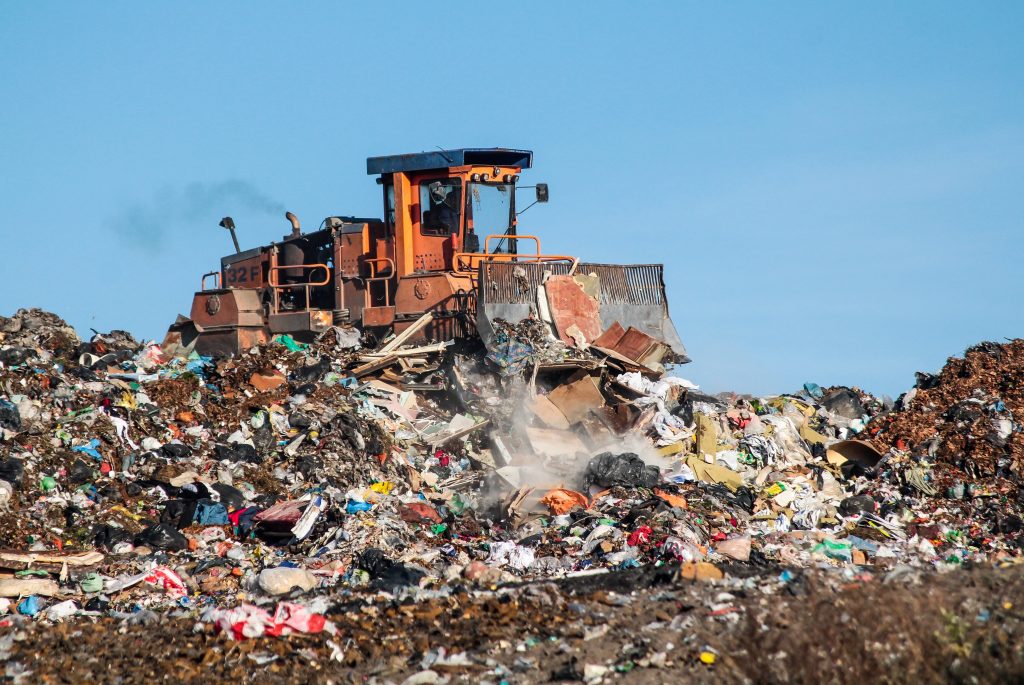Waste & material traceability solution for sustainable facilities

You’ll be surprised by how much waste is generated during Ramadan, including food, plastic, water, electronics, and textiles. More food consumption during iftar and social gatherings, excessive food purchases, and poor leftover management result in more food waste. For example, Dubai Municipality reports that food accounts for 22% of total waste produced in Dubai and that figure rises to 55% during Ramadan.
Also, Ramadan is a month when single-use plastic items are commonly used, which leads to an increase in plastic waste. Do you think that’s all? No, it’s not! Water waste, electronic waste, and textile waste increase during Eid celebrations due to excessive consumption of water, electronic devices, and new clothes.
It’s possible to decrease waste during Ramadan by encouraging smaller serving sizes, using reusable alternatives to single-use plastic, conserving water, and managing waste digitally. Businesses can take action to diminish their environmental impact and implement sustainable practices during Ramadan by understanding these strategies.

Companies in the food and hospitality industries, such as restaurants, hotels, and caterers, have to deal with more waste during Ramadan. Due to the increased volume of customers and the increased consumption of food and beverages during Ramadan, these companies usually experience an increase in food waste, plastic waste, and water waste.
Furthermore, charities that provide charitable services and distribute food to those in need during Ramadan are likely to generate more waste, particularly food waste. People also donate food and other items as an act of charity during Ramadan. Despite being positive gestures, these donations can also contribute to waste if they are not handled properly.
Food waste can have a negative impact on the sustainability goals of commercial ventures such as hotels and restaurants. As well as contributing to greenhouse gas emissions, food waste results in revenue losses and can damage the reputation of a business.

The increase in waste during Ramadan can be minimized by waste audits, waste reduction campaigns, food donations, composting, responsible e-waste management, and sustainable packaging. As a beginning, a waste audit can help organizations identify the types and quantities of waste generated during Ramadan, which can help them develop effective waste management strategies.
Engaging in waste reduction campaigns can help create sustainable practices among employees, customers, and stakeholders. This can include educational campaigns on decreasing waste, encouraging sustainable alternatives to single-use plastics, and helping with meal planning and portion control.
A further way for charities and companies to reduce food waste is to donate surplus food to those in need. By establishing partnerships with food banks and other charitable organizations, companies can ensure that surplus food is provided to those in need.

Want to reduce the amount of waste generated by your business during Ramadan? If the answer is yes, then it’s always better to go digital. Digital waste management solutions benefit hotels, malls, and restaurants.
Hotels, malls, and restaurants can monitor waste generation in real-time using digital waste management solutions. If you’re in this industry, you can use sensors to keep track of food waste. You can also manage waste disposal at different locations with integrated software. Such software can give you a deeper understanding of your waste operations and help you identify waste generation hotspots, develop better waste management strategies, and achieve sustainability goals.
There is no doubt that data analytics capabilities can help hotels, malls, and restaurants identify trends and patterns in waste generation during Ramadan. These capabilities enable you to analyze the types of food thrown away most often or the times of day when waste generation is highest. This information can help you develop effective waste management strategies and discover opportunities to reduce waste.
There’s more to it! It’s easy to get employees to take part in waste reduction initiatives with digital waste management. Employees can get real-time waste generation data from waste management apps and contribute to waste reduction efforts.

As we help many companies in different industries around the world, we can also help you manage your waste. Evreka360 and Evreka WasteDashboard can empower you to improve your waste management practices, reduce waste generation, and ensure sustainability during Ramadan and beyond.
Evreka360 is an all-in-one waste management platform that makes managing waste easier. You can control and supervise the entire waste management process with Evreka360. You can also use waste analytics to identify potential areas for improvement and improve profitability and sustainability.
Looking for a digital waste management solution for indoor facilities? Look no further than Evreka WasteDashboard. Our dashboard lets you manage waste more efficiently with advanced features such as digitized waste collection, sorting, and disposal systems, as well as comprehensive documentation capabilities. In addition, WasteDashboard offers opportunities to spend less time and money using insightful data.
Request DemoDiscover a world of efficient waste management with Evreka WasteDashboard! Join countless companies that have transformed their waste management practices. Get your free demo now to improve your sustainability during Ramadan and beyond.